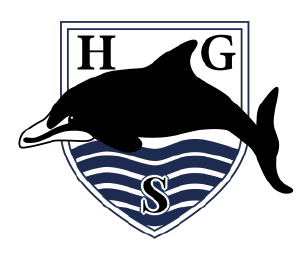
Science
Department Aims
The science department is committed to delivering a thorough and varied curriculum that prepares all students to be scientifically competent citizens of tomorrow. We aspire for as many of our students as possible to share our love of science and to want to carry on with their science education when they leave Hall Green School.
We are a well-equipped department of 10 fully qualified science teachers, supported by 3 science technicians. This allows us to deliver high quality practical and theory lessons to our students, which builds the key knowledge and skills required to create the next generation of scientists.
Teaching
In year 7, 8 and 9 pupils have 6 lessons a fortnight. In year 10 and 11 pupils have 10 lessons per fortnight. Across the five years students are taught a range of Biology, Chemistry and Physics topics. These topics are:
Year 7:
| Biology Topics | Chemistry Topics | Physics Topics |
| Key Principles | Key Principles | Space |
| Looking Inside Humans | Atoms & Mixtures | Forces & Their Applications |
| Reproduction | Geology | |
| Interdependence |
Year 8:
| Biology Topics | Chemistry Topics | Physics Topics |
| Drugs | Periodic Table | Energy |
| Genetics | Chemical Reactions | Waves |
| Plant Biology | Light |
Year 9
| Biology Topics | Chemistry Topics | Physics Topics |
| Cells & Microscopes | Atomic Structure | Electricity |
| Enzymes | Periodic Table | Motion |
| Diffusion | Bonding | Forces & Motion |
| Cells & Control | Chemical Calculations |
Year 10
| Biology Topics | Chemistry Topics | Physics Topics |
| Genetics | States and Separating | Conservation of Energy |
| Natural selection and genetic modification | Acids and Alkalis | Waves |
| Health and Disease | Electrolysis and Extraction | Light & the EM Spectrum |
| Ecosystems | Radioactivity |
Year 11
| Biology Topics | Chemistry Topics | Physics Topics |
| Plant Structures | Groups in the Periodic Table | Energy and Forces |
| Animal Coordination | Rates of Reaction | Electrical Circuits |
| Exchange and Transport | Fuels | Magnetism |
| The Atmosphere | Particle Model | |
| Forces and Matter |
On top of these units of study students also have a chance to develop some independent learning skills in science at the end of year 7 and 8. In year 7, students complete a research project and presentation about scientific theories and in year 8 students take part in a Science Fair, where students are given the opportunity to showcase their experimental as well as theoretical knowledge of something that interests them. Previous winning groups have investigated how to trick the brain, the fluorescence of different drinks and how to build the perfect catapult.
GCSE Pathways
Pupils at Hall Green School have two different pathways through GCSE Science – either studying GCSE Combined Science or to study Biology, Chemistry and Physics as three separate qualifications. The Combined Science course is worth 2 GCSEs and students can be entered at foundation tier (grades 1-1 to 5-5) or higher tier (grades 4-4 to 9-9).
The triple science pathway gives students 3 GCSEs and we expect all students on this pathway to be entered for higher tier exams. There are some extra units for students to complete and there is an expectation that students will be able to complement their work in school with sustained, but manageable, study at home.
Both courses are assessed by terminal examinations only and they do not have any coursework elements.
Further information, specific details and past papers can be found through the Edexcel science web page – https://qualifications.pearson.com/en/qualifications/edexcel-gcses/sciences-2016.html
We are proud that our results have consistently been significantly higher than both Local and National averages, making us one of the best performing science departments in the city.
Extra Curricular
The science department supports a range of extra curricular clubs and events including a practical based STEM club, peer to peer science mentoring, a star gazing night and trips to Sarehole Mill and the Natural History Museum in London.
Each year we also run a themed science week where students have enhanced access to one off events and external visitors. In previous years the themes have been ‘Space’ and ‘Medicine and The Human Body’.
All of these activities are wonderfully supported by our team of enthusiastic science ambassadors, who are selected each year across all year groups.
